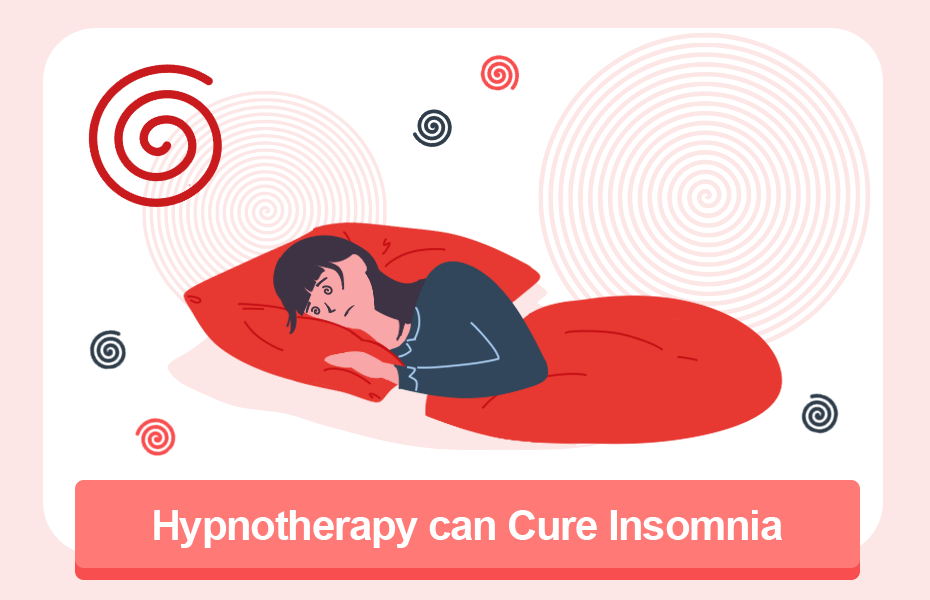Hypnotherapy Can Cure Insomnia
People are encouraged to endure sleepless nights. Whether it’s to meet deadlines or prove some sort of point about how hard they work, the value of a good night’s sleep is dangerously underrated.
Sleep has an effect on your physical and mental health. Lack of sleep is detriment to your overall quality of life and everyday safety. When you don’t get enough sleep, your vision may blur affecting your driving, you can’t focus at work or school, you’re irritable, and it can stunt your growth and development. Although they don’t like to admit it people get depressed and lose confidence when they’re overtired. Exhaustion kills cognitive capabilities and the mind is too cloudy to effectively use problem-solving skills. Sleep is important for healthy brain functions and overall emotional well-being.
Sleep Disorders
There are a number of different types of sleep disorders caused by a number of different things:
- restless leg syndrome – irresistible urge to move the legs, condition wakes the person up out of their sleep to move;
- JetLag – occurs when you travel quickly across multiple time zones;
- narcolepsy – causes overwhelming drowsiness, can cause you to fall asleep at anytime, anywhere; chronic disorder;
- night terrors;
- sleepwalking – person gets up and walks around while still sleeping;
- obstructive sleep apnea – chronic breathing problems, intermittent airflow blockage during sleep;
- diet – sugar, caffeine, alcohol.
What Is Insomnia?
When you constantly have problems falling asleep, that’s insomnia. The nervous system has a hard time winding down, not allowing the mind to shut down, preventing you from relaxing. People experience insomnia without even knowing it. Some of the symptoms are as follows: fatigue, low levels of concentration, excessive sleepiness, and anxiety.
Hypnosis Vs Hypnotherapy
| Hypnosis |
|
| Hypnotherapy |
|
Hypnosis for Sleep
Sleep insomnia hypnosis has been controversial in the past but has gained newfound popularity as sleep disorders are on the rise. Hypnosis is the place within your consciousness spectrum in between wakefulness and sleep. It works for some people because it puts the mind in a state where it is not susceptible to distractions.
Hypnotherapy for Insomnia
If hypnosis is the place between the consciousness spectrum, hypnotherapy figures out why you can’t get there. It gets to the root of the patterns that are resulting in your restless mind, addresses the pattern, then uses the hypnosis methods that will directly address your issue.
Let’s Slow Down the Movie
Creatives, in particular, use the phrase “my mind is always turning” as a way to describe the reason they can’t sleep. What that means is the mind does not stop thinking, and thoughts are moving too fast to even process sometimes. Picture a movie reel that turns inside a projector so fast that you can’t really watch the movie, it may give you a headache, or you may even feel dizzy after watching it. Hypnotherapy uses a technique referred to as “let’s slow down the movie” to relax the mind. When your mind is turning you are thinking in disjointed images or “movies” that are moving too fast. The goal is to manipulate and slow down the thoughts using relaxing breathing techniques and suggestions.
Use Your Peripheral Vision
Peripheral vision is defined as what you see on the side while looking ahead. A lot of times insomnia is caused by tunnel vision, which is just the opposite. Tunnel vision focuses on what’s in front of you and not what’s going on around you. It’s associated with fixation, obsession, worry, and adrenaline. These are all things that cause you not to able to go to sleep.
When you shift from tunnel vision to peripheral vision you start at one spot in a room and slowly go from space to space on the edges of your vision until you see the entire room. It’s a relaxation aid that triggers the parasympathetic nervous system, slows the heart rate, and relaxes the sphincter muscles. You become more aware of the movement around you and less aware of the details like the color of the things around you.
Heart-Breathing Exercise
A simple technique that’s used in therapy, but can also be used by the patient at home is heart breathing exercises. These exercises focus on deep breaths in the core, chest and heart. Listening to the heartbeat, feeling every beat, and hearing every beat and the blood flow through. It’s similar to meditation techniques and causes the mind to slow down, taking the patient’s brain into theta; eventually you fall asleep.
Taking an Imaginary Pill for Sleep
Studies show that placebo medication works for many people just as real medicine does. The same theory works for “taking an imaginary pill.” Self-hypnotherapy is exactly how it sounds. It’s self-induced hypnosis brought on by self-suggestion. Taking the imaginary pill is a form of self-hypnosis where you imagine taking a sleep aid, and you focus on the effects the medicine has on your body. You squeeze the thumb and forefinger together as if you’re holding the real pill, further causing your subconscious to believe you’re taking it. This brings on the pseudo-effects of the drug using mental pictures to make you sleep.
Hypnosis used to be for entertainment. Current techniques including self-hypnosis audios have proven successful. Trust the process, if you still can’t sleep after you’ve tried all of these methods, it’s time to explore some deeper issues. You can’t go through life with no sleep.















